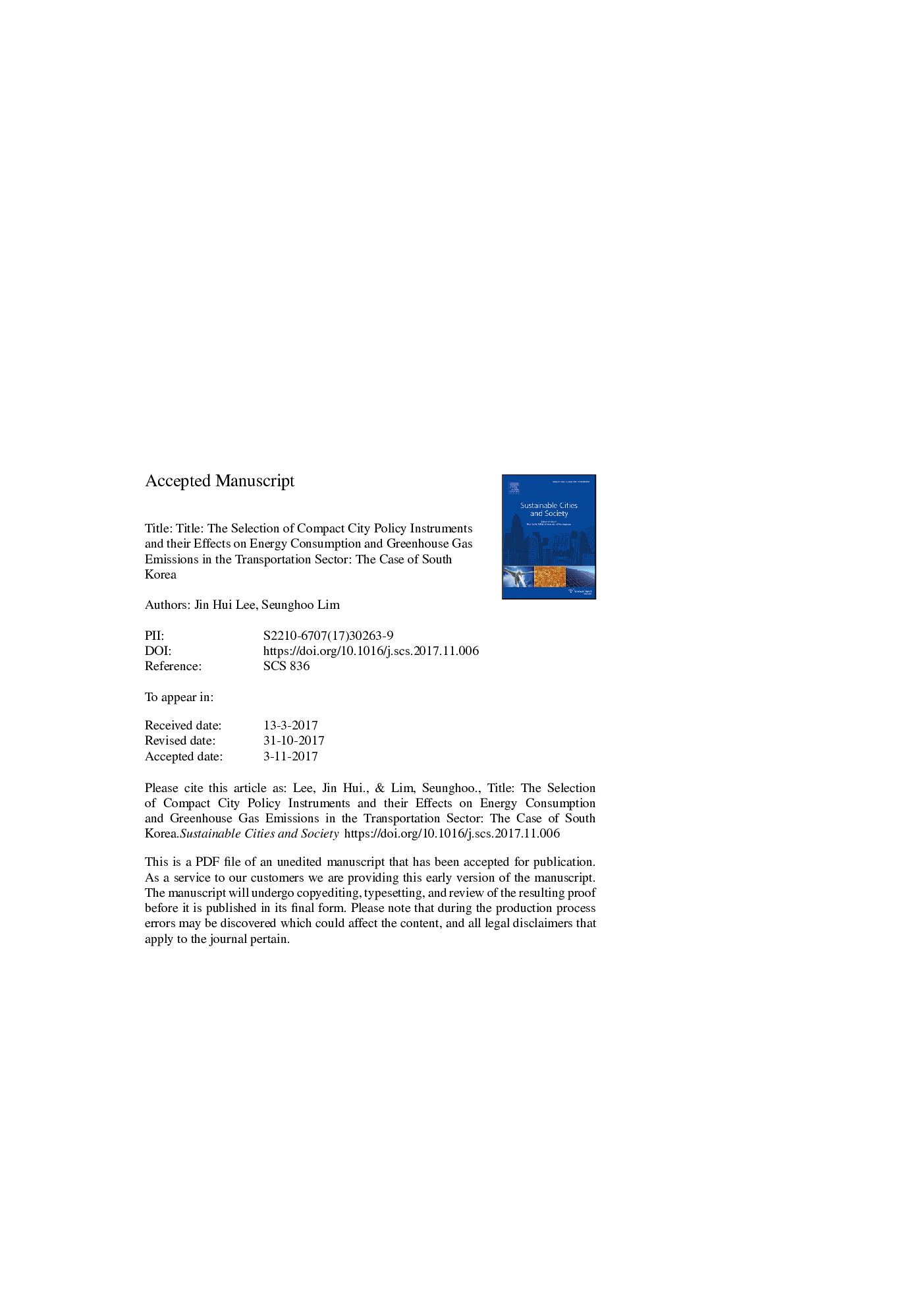| Article ID | Journal | Published Year | Pages | File Type |
|---|---|---|---|---|
| 6775753 | Sustainable Cities and Society | 2018 | 38 Pages |
Abstract
This paper uses the South Korean case to directly identify the factors that affect local governments' policy instrument choices for achieving the compact city concept and test whether these policy tools lead to low energy consumption and environmentally friendly urban areas. The results of binary logistic regressions show that local governments' socio-economic characteristics and their locations influence the implementation of compact city-related urban policy instruments. The results of hierarchical linear models suggest that there are strong positive associations between greater urbanization and both transport-related energy consumption and transportation-sector greenhouse gas emissions. These results indicate that urban planning for optimal city size, significant compact city characteristics and effective policies with sufficient financing can help reduce transport-related energy consumption and air pollution. Therefore, we need innovative urban planning policies and policy implementation processes to achieve energy efficiency and air quality improvements in the urban context.
Related Topics
Physical Sciences and Engineering
Energy
Renewable Energy, Sustainability and the Environment
Authors
Jin Hui Lee, Seunghoo Lim,
